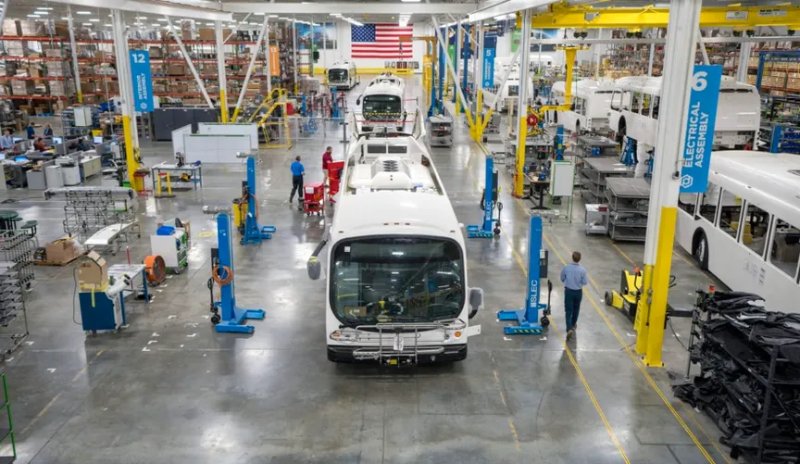
The company has failed to turn a profit on the 1,300 EV buses it has sold across North America. It plans to continue operations after a restructuring.
Proterra, the largest U.S. electric-bus maker, filed for Chapter 11 bankruptcy protection late Monday.
It’s a shocking turn for the nearly two-decade-old U.S. company, which has sought to compete against giant Chinese rival BYD and to partner with traditional bus-makers in the emerging North American and European electric bus markets.
Proterra stated it plans to continue business operations as it pursues a restructuring “to strengthen its financial position through a recapitalization or going-concern sale.” The company intends to work with the bankruptcy court and its creditors to “use existing capital to fund operations, including paying employee salaries and benefits, and compensating vendors and suppliers on a go-forward basis.”
Proterra, founded in 2004, has sold about 1,300 buses to more than 130 transit agencies in the U.S. and Canada. It also supplies drivetrains and batteries for other bus and transit manufacturers including Daimler’s Thomas Built Buses and Freightliner Custom Chassis divisions, Van Hool, Bustech and others.
The Burlingame, California–based company has raised about $682 million in venture capital from investors including Daimler, Generation Investment Management, Kleiner Perkins, Tao Capital Partners, Soros Fund Management, Cowen Sustainable Advisors and GM Ventures to build electric buses that gained a foothold in early North American deployments.
In 2021, it became one of the largest of a slew of EV-related companies to go public via a reverse merger with a special-purpose acquisition company (SPAC). The deal netted Proterra $640 million and valued the company at $1.6 billion. Following the public listing, Proterra announced plans to expand its South Carolina manufacturing facility and capitalize on the boost in federal EV funding from 2021’s Bipartisan Infrastructure Law and 2022’s Inflation Reduction Act.
And unlike many of the other EV SPACs that have struggled to attain manufacturing scale, “Proterra, to its credit, actually had very meaningful revenue,” said Pavel Molchanov, director and equity research analyst at Raymond James & Associates. In its most recent quarterly earnings statement in March, Proterra reported revenue of $80 million, with roughly two-thirds from its bus manufacturing.
But Proterra has failed to turn a profit on its core electric bus manufacturing operations, as well as the drivetrain, battery and EV charger businesses it launched over the past five years, he said. Proterra’s cost of goods sold for the first quarter was $86.1 million, even greater than its revenue, which “means that Proterra loses money on every bus it sells,” he said.
Disclaimer: The views, suggestions, and opinions expressed here are the sole responsibility of the experts. No Herald Quest journalist was involved in the writing and production of this article.